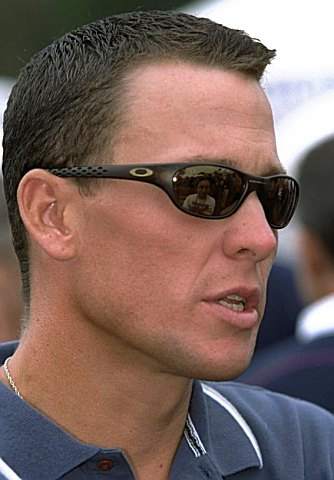Suffering is as essential to a good life, and as inextricable, as bliss. The old saying that you should live each day as if it's your last is a nice sentiment, but it doesn't work. Take it from me. I tried it once, and here's what I learned: If I pursued only happiness, and lived just for the moment, I'd be a no-account with a perpetual three-day growth on my chin. Cancer taught me that.

Before cancer, whatever I imagined happiness to be, pretty soon I wore it out, took it for granted, or threw it away. A portfolio, a Porsche, a coffee machine--these things were important to me. So was my hair. Then I lost them, including the hair. When I was 25, I was diagnosed with advanced testicular cancer, which had metastasized into my lungs and brain. I sold the car, gave up my career as a world-class cyclist, lost a good deal of money, and barely hung on to my life.
When I went into remission, I thought happiness would mean being self-indulgent. Not knowing how much time I had left, I did not intend to ever suffer again. I had suffered months of fear, chemotherapy so strong it left burn marks under my skin, and surgery to remove two tumors. Happiness to me then was waking up.
I ate Mexican food, played golf, and lay on the couch. The pursuit of happiness meant going to my favorite restaurant and pursuing a plate of enchiladas with tomatillo sauce.
But one day my wife, Kristin, put down her fork and said, "You need to decide something: Are you going to be a golf-playing, beer-drinking, Mexican-food-eating slob for the rest of your life? If you are, I'll still love you. But I need to know, because if so, I'll go get a job. I'm not going to sit at home while you play golf."
I stared at her.
"I'm so bored," she said.
Suddenly, I understood that I was bored, too. The idleness was forced; I was purposeless, with nothing to pursue. That conversation changed everything. I realized that responsibility, the routines and habits of shaving in the morning with a purpose, a job to do, a wife to love, and a child to raise--these were the things that tied my days together and gave them a pattern deserving of the term living.

Within days I was back on my bicycle. For the first time in my life, I rode with real strength and stamina and purpose. Without cancer, I never would have won a single Tour de France. Cancer taught me a plan for more purposeful living, and that in turn taught me how to train and to win more purposefully. It taught me that pain has a reason, and that sometimes the experience of losing things--whether health or a car or an old sense of self--has its own value in the scheme of life. Pain and loss are great enhancers.